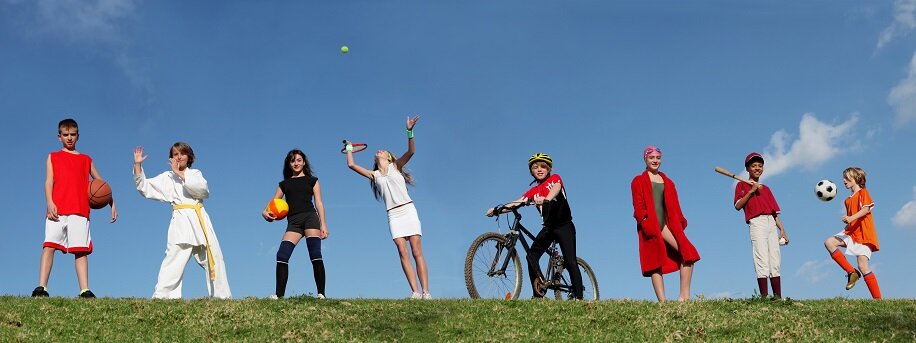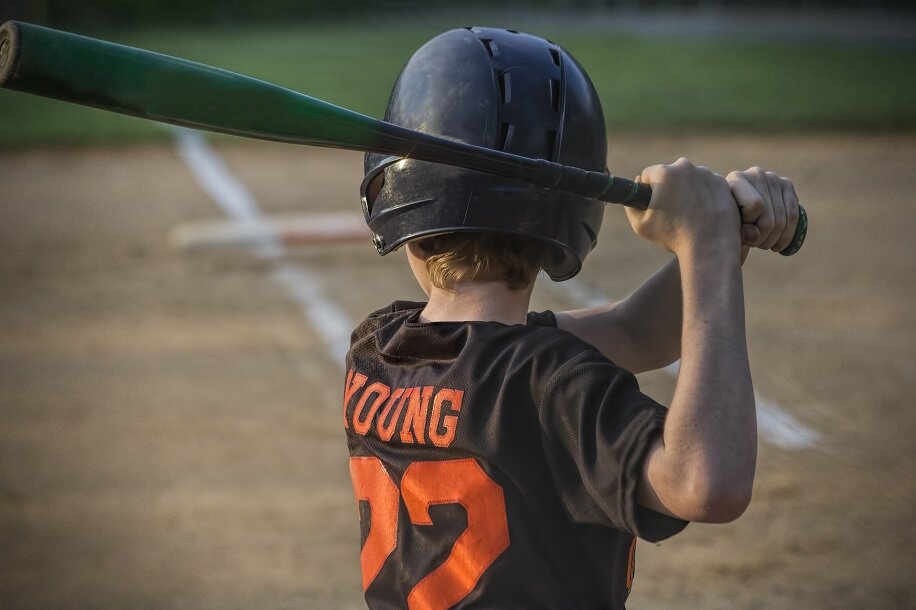Youth Sports: Don’t Forget They’re Just Kids
Last week I talked about the importance of functional training for kids, regardless of whether they were in sports or not. This week I’m going to continue the theme of youth fitness and talk about the over-specialized athlete.As a coach, you might think that I’d encourage kids to specialize in whatever sport I’m coaching. Sure, it is always fun having that star athlete on your team, but I grew up during a time where specialization was essentially non-existent. Sure we had our favorite sports and we were generally better at one than another, but that didn’t stop us from playing multiple sports. And summers…well, that was a time for fun. Things seem very different now. Some kids (and I would argue too many) spend the whole year playing one sport, such as soccer, baseball, lacrosse, or basketball. And what do they do during the summer? They go to a camp and keep playing that sport. Kids should absolutely stay active during the summer but kids also need time to just be kids. Their bodies need time to recover, and they need months off to ride bikes and play with friends instead of always being in a heavily structured, adult-supervised sports environment.
Things seem very different now. Some kids (and I would argue too many) spend the whole year playing one sport, such as soccer, baseball, lacrosse, or basketball. And what do they do during the summer? They go to a camp and keep playing that sport. Kids should absolutely stay active during the summer but kids also need time to just be kids. Their bodies need time to recover, and they need months off to ride bikes and play with friends instead of always being in a heavily structured, adult-supervised sports environment. Don’t get me wrong, I’m not faulting anyone for falling into the cycle of specialization. I struggle with it with my own kids. Because they don’t play baseball or softball twice a year and don’t play on a travel team, I worry about how far "behind" they will be compared with other kids who focus on those sports. But you know what? Because they’re fairly well-rounded athletes, they get up to speed pretty quickly. Will they be the best on the team or an All-Star each season? Probably not. But we’re all okay with that. They love playing and being with their friends and they’re learning the fundamentals of the sports.Early specialization may enhance a skill but it does not enhance athleticism like practicing multiple sports can. In fact, the well-rounded athlete may be the one most likely to succeed. Studies of college-level and Olympic athletes found that the majority of them played multiple sports growing up and did not specialize early.
Don’t get me wrong, I’m not faulting anyone for falling into the cycle of specialization. I struggle with it with my own kids. Because they don’t play baseball or softball twice a year and don’t play on a travel team, I worry about how far "behind" they will be compared with other kids who focus on those sports. But you know what? Because they’re fairly well-rounded athletes, they get up to speed pretty quickly. Will they be the best on the team or an All-Star each season? Probably not. But we’re all okay with that. They love playing and being with their friends and they’re learning the fundamentals of the sports.Early specialization may enhance a skill but it does not enhance athleticism like practicing multiple sports can. In fact, the well-rounded athlete may be the one most likely to succeed. Studies of college-level and Olympic athletes found that the majority of them played multiple sports growing up and did not specialize early. Here are tips for making sports a positive experience:
Here are tips for making sports a positive experience:
Be a cheerleader, not a coach.
Resist the post-game analysis. It can be hard, but sit back and enjoy watching your child play. Loss and mistakes are part of any game/sport and are an important part of growing up. If you do coach your child’s team remember: you’re a teacher. A winning-at-all-costs approach might bring home a trophy, but are you developing all the kids? Are they having fun?
Set limits.
Athletes should take a total of two to three months off per year from a specific sport, according to American Academy of Pediatric guidelines.
Free play should be free of coaching.
Free play, such as after school pick-up games, helps to build social and emotional skills and can be an important tool for preventing overuse injuries. Don’t coach them out of the corner of your eye. So what if their swing isn’t perfect or they overthrow a ball. Let them have fun with their imagination.
Help them find their passion, not yours.
Your goal as a parent is to find athletic experiences that encourage positive lessons, like sportsmanship, teamwork, and cooperation. Sports should bring out the best in your children and the best in your relationship with them. It has with mine.

